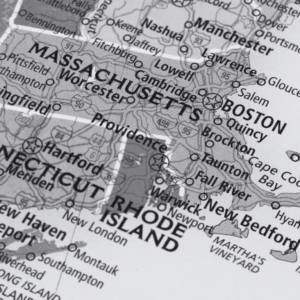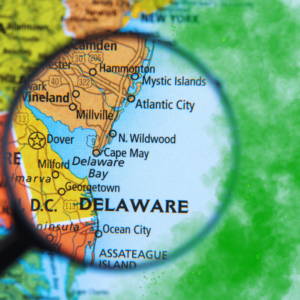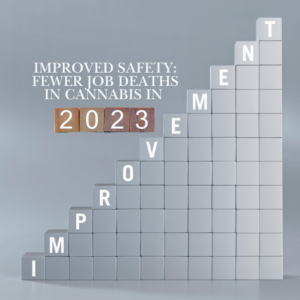Cannabis Recalls Push Missouri Operators to Comply with New Rules

Missouri Cannabis Industry Grapples with New Plain Packaging Rules Amid Statewide Product Recall
The cannabis industry in Missouri is currently navigating significant changes as newly enacted plain packaging regulations add to concerns about inventory shortages, following a major statewide product recall. With these two regulatory developments occurring simultaneously, operators across the state are facing a challenging period of adjustment.
Compliance with New Packaging Rules
As of September 1, 2023, all cannabis brands, manufacturers, and retailers in Missouri must adhere to stringent packaging requirements. Licensed operators have had months to comply with these new rules, but many are still struggling to meet the guidelines. These rules mandate plain packaging with only one primary color and allow for just two logos or symbols, each in different colors. In addition, all packaging designs must be approved by the Missouri Division of Cannabis Regulation (DCR), a process that takes about 60 days.
Lisa Cox, a spokesperson for the Missouri Department of Health and Senior Services (DHSS), emphasized that the regulations aim to prioritize consumer safety. “This regulation ensures the health and safety information is the focus of the packaging,” she told MJBizDaily. Cox also mentioned that the new rules are designed to reduce the appeal of cannabis products to children.
However, some in the industry feel that the new requirements go beyond the original scope of Missouri Amendment 3, which voters passed in November 2022 to legalize adult-use marijuana. Gabe Parton Lee, general counsel for Oregon-based edibles maker Wyld, pointed out that the regulations feel overly restrictive. “This is an adult-use program imposing pharmaceutical-type standards without consistent application, rapid responses, or clear guidelines,” he said.
Packaging Rules Impact Small Businesses
The new regulations are hitting smaller operators particularly hard. Christine Apple, founder and CEO of Portland, Oregon-based Grön, which produces cannabis-infused edibles, expressed concerns about the financial burden the packaging rules are placing on small businesses. “For many, the financial burden of discarding old packaging – sometimes worth tens, if not hundreds of thousands of dollars – could have a significant impact,” Apple said, adding that the new rules have affected her business as well.
These changes are causing disruptions in the supply chain, and some retailers have already started noticing the effects. Mint Cannabis, which operates a dispensary in the St. Louis suburb of St. Peters, has observed a slight drop in product availability, particularly among smaller brands. Raul Molina, co-founder and chief operating officer of Mint Cannabis, stated, “As always, the smaller brands are the ones that have the hardest time pivoting.”
Inventory Shortages and Packaging Deadlines
According to data from LeafLink, a cannabis wholesale platform, the number of stock keeping units (SKUs) in Missouri’s cannabis market has dropped dramatically in recent weeks. The number of SKUs sold weekly through LeafLink’s platform decreased from around 4,200 during the summer to approximately 3,400 by early September, a 20% decline.
Despite this drop in SKUs, wholesale transactions and sales volume have remained steady. “Brands are rationalizing SKUs due to the new recall notices and changes to packaging rules, but it hasn’t widely impacted unit pricing or wholesale volumes on our platform,” said Ben Burstein, corporate development manager at LeafLink.
While the packaging regulations are contributing to inventory challenges, they are not the only factor behind the shortages. The Missouri Division of Cannabis Regulation recently issued a large-scale recall that affected over 132,000 cannabis products due to non-compliant lab testing and improper tracking through the state’s Metrc system.
This recall, which is the largest in Missouri’s regulated cannabis market, has further strained the industry. According to Molina from Mint Cannabis, these product quarantines are having a greater impact on inventory levels than the packaging changes, with deliveries falling behind schedule.
Missouri’s Second Major Cannabis Recall
This latest recall marks Missouri’s second significant product recall in the past year. About a year ago, 62,000 cannabis-infused products were recalled following compliance issues tied to Delta Extraction, a Missouri-based manufacturer. The 2022 recall caused widespread inventory shortages and led to the revocation of Delta Extraction’s manufacturing license.
The current recall is hitting retailers and manufacturers hard, particularly as they grapple with the additional burden of meeting the state’s new packaging regulations. Retailers are now waiting on state approval for redesigned packaging, and this process has been slow-moving.
As of last week, more than 64,000 packaging applications were under review, according to DHSS data. The state has approved about 58,000 applications so far, meaning around 39% of the nearly 150,000 total applications have been processed since the September 1 approval window opened.
Many operators are worried about missing key deadlines. Under the new rules, all products packaged under the previous guidelines must be pulled from retail shelves by November 1, unless they are sold beforehand.
Anticipated “Fire Sale” of Cannabis Products
With the November 1 deadline looming, some industry experts are predicting a potential “fire sale” as dispensaries rush to clear their shelves of non-compliant products. John Mueller, CEO of Greenlight Dispensary, Missouri’s largest retail chain, estimates that about 20% of the cannabis products currently on the market will have to be sold or removed by the deadline.
“We believe there will be some portion of a fire sale coming up – prior to Nov. 1, if that deadline is not adjusted,” Mueller said. He added that approximately 5% of Greenlight’s products could face issues with compliance by that date.
While there has been speculation that regulators might extend the deadline again, DHSS spokesperson Cox dismissed this possibility, citing that operators have had ample time to comply with the new rules. “Licensees have had a year to submit applications for approval and five months’ notice that they should not expect another extension,” she said.
The Road Ahead for Missouri’s Cannabis Market
As Missouri continues to refine its regulatory framework for cannabis, industry stakeholders are bracing for ongoing disruptions. The combination of the new plain packaging rules, ongoing product recalls, and impending compliance deadlines has created a perfect storm of challenges for the state’s cannabis businesses.
Many in the industry, particularly smaller operators, are worried about the long-term impact of these regulations on their bottom lines. However, with adult-use cannabis sales continuing to grow in Missouri, there is hope that the market will stabilize once these regulatory hurdles are cleared.
In the meantime, Missouri consumers can expect to see discounted cannabis products on shelves in the weeks leading up to the November 1 deadline, as dispensaries attempt to offload non-compliant inventory. How the market will adapt after this period remains to be seen.











